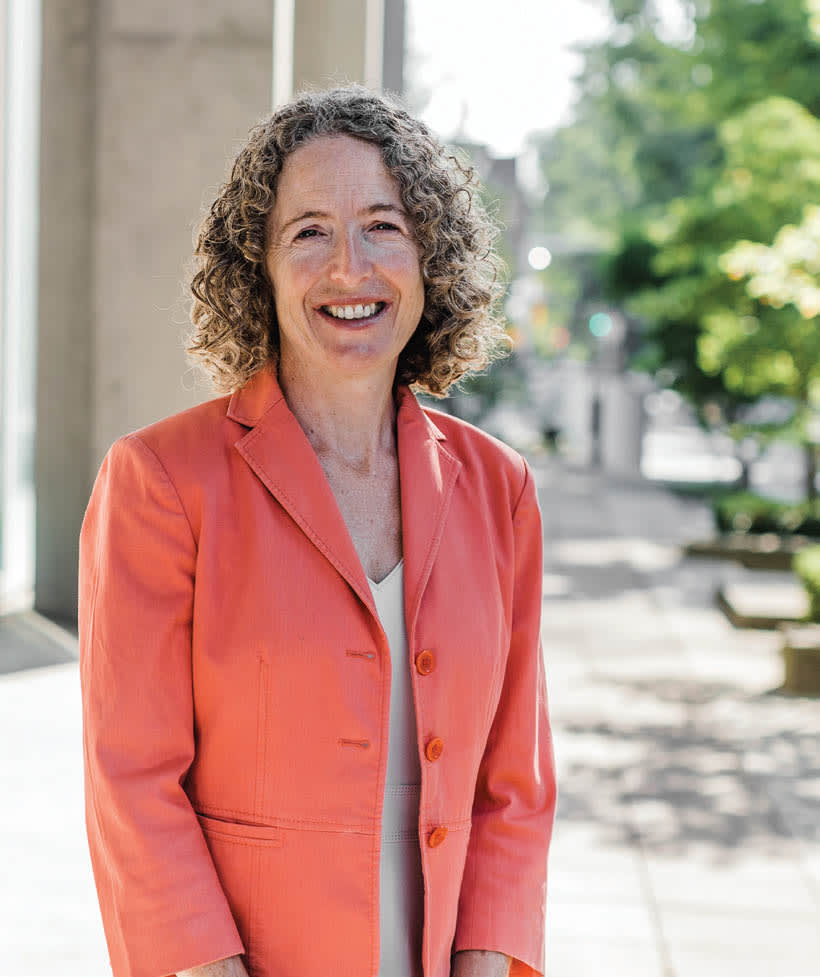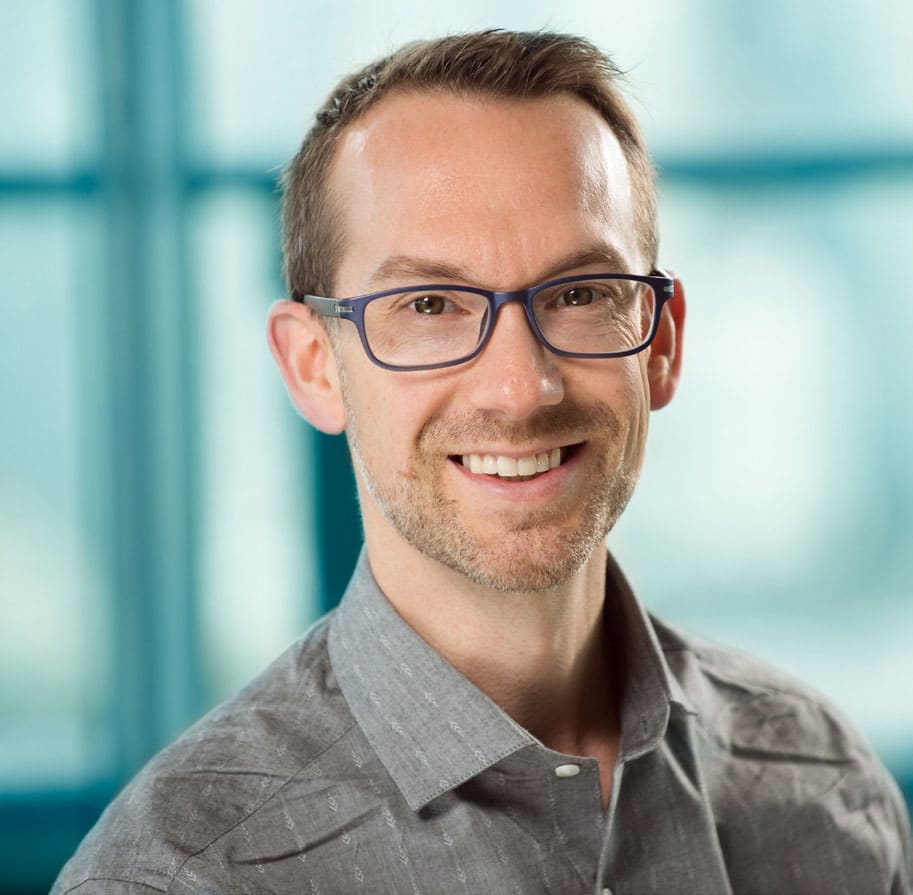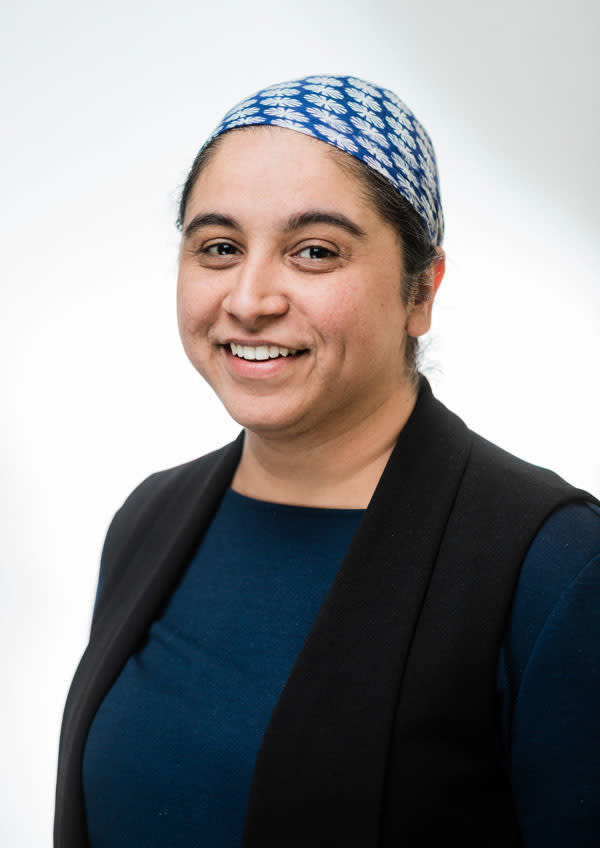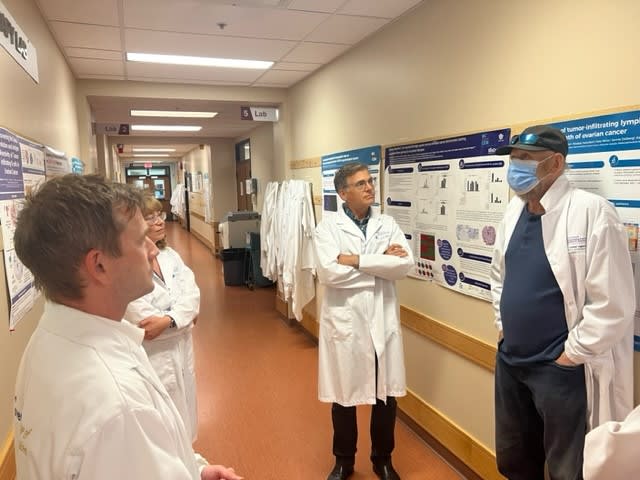
To support life-saving technology and research at the CLC contact Elissa Morrissette at 604.707.5992 or elissa.morrissette@bccancer.bc.ca

In the following pages you’ll read about groundbreaking new research, advances in innovation and cutting-edge technology, and the BC Cancer experts who are bringing it all to our own backyard. But behind it all — behind everything we do here at the Foundation — are the people facing cancer.
People like Aanu Adeleye, for whom a cancer diagnosis seemed unsurmountable at first. Looking back, she’s filled with gratitude at the incredible care and compassion she received at BC Cancer. Your donations made this possible.
Your investments power advances that catch cancer earlier and provide more effective, targeted treatment such as the state-of-the-art imaging machine that the Gayton family is helping fund. For others, such as Kim and Brenda Pirie, donor-funded progress adds precious years and novel treatments that enable more quality time with family and friends.
We’re also proud to be funnelling your support into the next generation of talent at BC Cancer as demonstrated by Jagbir Kaur, whose research will inform new pathways to ensure equitable cancer care reaches the most vulnerable populations in our province.
A year ago, we asked you to go beyond belief with us to raise $500 million to fuel the people and programs at BC Cancer that are making this a reality. You answered our call with enthusiastic and unprecedented support. But so much more is within our reach.
Together, we can champion the experts and innovation at BC Cancer, to help realize the hopes and dreams of everyone who faces a diagnosis: A life beyond cancer.

When your child is diagnosed with cancer it’s devastating.

Drs. David Scott & Christian Steidl
Bob and Penny Gayton have been down this unimaginable road twice.
Thanks to incredible care in B.C., and innovations in life-saving cancer treatment, both their children survived and are now healthy contributing members of society.
The Gayton family has always believed in giving back, and encourage others to do the same. To thank the cancer community for its major contribution to their children’s health, they’re donating $500,000 to BC Cancer’s Centre for Lymphoid Cancer (CLC) to advance world-leading research that is racing to understand a disease which is increasing in incidence faster than any other cancer.
Half the gift will support high-priority efforts at the CLC, including helping towards the acquisition of a CosMX SMI (Spatial Molecular Imaging) machine which BC Cancer Foundation is actively fundraising for.
CLC Co-Directors Drs. Christian Steidl and David Scott are incredibly excited to be among the first wave of researchers in the world to receive this cutting-edge equipment.
“We used to think of cancer as a high-rise: a sleek, impenetrable tower we could only see from a distance. Spatial imaging technology is like the key to the front door. Effectively allowing us to go inside, and walk through each room and corridor,” explains Dr. Steidl.
“An accurate diagnosis, which informs the right treatment at the right time, is probably the most important thing we can do for our patients.”
Dr. David Scott
“It will allow us to analyze large quantities of samples in more detail than ever before, at a much lower cost,” says Dr. Scott, which will inform treatment, such as whether or not to recommend immunotherapy which comes with serious side effects, and is not effective for every lymphoma patient.
The remaining $250,000 of the donation will fuel future breakthroughs at the CLC through the Gayton Family Endowment Fund for Lymphoid Cancer Research.
“A great motivator, this gift is a reminder that our research affects real people, which makes us want to work even harder,” adds Dr. Steidl.
“The Gayton family’s ongoing support of the CLC is deeply personal to them,” says Sarah Roth, president and CEO of the BC Cancer Foundation. “And their passion and empathy for others who may face a lymphoid cancer diagnosis is
truly inspiring.”
To support life-saving technology and research at the CLC contact Elissa Morrissette at 604.707.5992 or elissa.morrissette@bccancer.bc.ca

Clockwise from top to left: Drs. Nicole Chau, Sarah Hamilton, Janessa Laskin and Cheryl Ho
It’s difficult to overstate the profound shift in cancer care that occurred when scientists first mapped the human genome in 2003. Before then, our genetics were a black box, and because cancer is a disease of the genome, that meant there was no way for us to understand its various causes.
Once the genomic vault was cracked, however, we finally glimpsed not just our genetic blueprint, but cancer’s as well. And for the past 20 years, our donor community has supported BC Cancer researchers and clinicians on the leading-edge of genomics as they use that knowledge to decode the disease.
BC Cancer experts have made world-leading advancements in tailored cancer therapy — they were the first program in the world to use the complete genomic profile of a tumour to inform treatment.
In that time, what they’ve learned and the implications for cancer prevention, treatment and care have been immeasurable. In exploring the cancer blueprint, BC Cancer experts have made world-leading advancements in tailored cancer therapy — they were the first program in the world to use the complete genomic profile of a tumour to inform treatment. It even enabled the discovery of the BRCA1 and BRCA2 gene mutations — the “breast cancer genes” — which are informing not just breast, but ovarian and pancreatic cancers as well.
Knowledge and technology has progressed to the point where many patients can access a genomic panel of most common mutations before they’re even seen by their oncologist, giving the oncologist an overview of a patient’s cancer and potential treatment opportunities before the first consultation.
Genomics has also paved the way for BC Cancer’s PATH (Personalized Approaches in the Treatment of Head & Neck Cancers) project, which holds the potential to set a new global precedent for how to treat these types of disease. Using genomic insights to guide and predict the most effective treatments for individual patients, medical oncologists Drs. Janessa Laskin, Cheryl Ho and Nicole Chau and radiation oncologist Dr. Sarah Hamilton have worked tirelessly for the past four years to move PATH from idea to reality.
Using genomic markers linked to treatment resistance, they’re exploring why head and neck cancers differ in their responses to radiation therapy. The program also seeks to identify what role viruses, such as human papillomavirus (HPV), play in head and neck cancers; all while exploring whether deep genomic analysis can help pinpoint gene mutations as potential targets for treatment.
“Our partners at other BC Cancer centres are eager to participate in PATH and grow the study across the province, which will gain us greater knowledge with each new participant,” explains Dr. Chau. That’s the promise for genomics in just this space alone, with a potential impact extending far beyond the current and future patients in the PATH project.
In just two decades, genomics has come from needing thousands of labs and minds working to unlock the human genome, to being able to decode multiple tumour genomes in a single day at the L.J. Blackmore Cancer Research Centre.
This moment is due in large part to donor support that goes directly to innovative research like the PATH project.
Genomics is now integral to a future in which technology and understanding helps clinicians stay ahead of anyone’s cancer, regardless of the type.
We are here because of our community of donors and we will make that future a reality with their help.
To learn more about how you can support PATH contact Sandi London at 604.877.6219 or sandi.london@bccancer.bc.ca
Kim and Brenda Pirie decided long ago that they wouldn’t put off seeing the world until retirement.

Brenda (RIGHT) with Kim and their children Brad and Lindsay
They travelled extensively before Brenda’s breast cancer diagnosis, and after her disease metastasized their trips became even more meaningful. Now, Kim is donating $50,000 to support the development of a new cancer centre in Nanaimo to bring care closer to the place Brenda loved most: home.
“I’m going in. Are you coming with me?” Kim recalls Brenda shouting to him across a group of slackjawed tourists watching 50 to 60 reef sharks circling in the blue water beneath their boat in Bora Bora.
“She just started doing things like that,” he says of Brenda’s spontaneity after her 2014 diagnosis, which required surgery, chemo and radiation, and resulted in depression so severe she required psychiatric care.
After meeting Brenda in the ‘80s at a “big, fat Greek wedding,” that rivalled the movie, Kim quickly decided that he’d accompany her anywhere. And so, he hopped into the shark-infested waters after her.
“If Brenda wasn’t afraid, I wasn’t going to be either. We had such a good time. At that point we felt that the cancer was in the past.”
Kim Pirie
Unfortunately, in 2016 they discovered a node in Brenda’s lung and she underwent another invasive surgery. Six months later, her cancer was deemed inoperable. The good news, says Kim, is Brenda was put on a chemotherapy pill which was packable and only required three-week follow-ups at BC Cancer.
They made the most of this. Travelling to Mexico, New York, New England and the Maritimes. A family trip to visit their son Brad on Baffin Island. A cruise across the Pacific. The Okanagan. San Francisco. Hawaii. Las Vegas. In March 2020, another cruise was cut short by COVID-19.
Brenda, like the rest of the world, stayed close to home for the next two years. Tending to her beloved garden or at her “happy place,” their trailer in Yellow Point. She and Kim took one last cruise to Alaska in May 2022 where a much weakened Brenda watched the glaciers float by from their cabin’s deck.
Three months later she passed away at home with Kim, Brad and their daughter Lindsay, who had become a nurse at Nanaimo Regional Hospital during her mom’s illness.
While Brenda loved to travel, even the short trips to Victoria for radiation or Vancouver for diagnostics were grueling, says Kim. After donors in the community helped bring the first PET/CT scanner to the Island in 2019, Kim was also inspired to support cancer care closer to home.
“I said if they ever announce a BC Cancer centre in Nanaimo I’ll donate $50,000.” It’s a venture that Brenda would have jumped in with both feet, he says. “And, of course, I’d have followed.”
The Foundation recently contributed $1.75 million to expand precision radiation therapy in Prince George, thanks to the support of hundreds of donors, including local businesses and residents.

Dr. Rob Olson, Radiation oncologist and research lead
A lot can change in 10 years. In 2013, the U.K. was still part of the European Union, streaming platforms were just emerging and Hamilton had not yet made a relatively obscure 18th century politician a household name.
For radiation oncologist and research lead Dr. Rob Olson, the past decade saw BC Cancer – Prince George (Centre for the North) grow from a new, seemingly remote cancer centre to a precision radiation research hub.
The path wasn’t easy, he admits. “When I initially wrote grants, the grant reviewers gave feedback that the centre probably lacked the infrastructure and staff to run radiation clinical trials. But I was able to produce so many research papers that they couldn’t really use that argument anymore.”
Today, BC Cancer – Prince George is home to a team of world-class researchers participating in cutting-edge SABR clinical trials. SABR is an innovative, high-precision therapy that delivers higher doses of radiation over less treatments.
Last November, the team gained recognition for their SABR-5 trial, which looked at the effects of SABR treatments on patients whose cancer had spread from the original location to up to five new sites. “This research is important as it showed that the side effects from SABR are low and the control of the cancer spread is high (90% at one year),” said Dr. Olson at the time.
The Foundation recently contributed $1.75 million to expand precision radiation therapy in Prince George, thanks to the support of hundreds of donors, including local businesses and residents.
The team is building on this momentum as they prepare to launch SIMPLIFY-SABRCOMET. SIMPLIFY is an international Phase III trial looking at the curative rates and side effects of using a single SABR treatment versus multiple (up to eight) SABR treatments. All BC Cancer centres will be participating, as well as over 10 international sites, but it will be managed from Prince George and Dr. Olson is expanding his team to staff the trial – something he says is a point of pride for the centre.
“Clinical trials serve as a recruitment and retention tool for our centre. We have research fellows and staff move to Prince George specifically because we’re running these trials.”
This research stands to benefit patients across the province, but rural patients in particular will be impacted. Fewer treatment sessions reduces the need to travel to cancer centres. Follow-ups can be done virtually and physical exams completed by the patient’s family doctor or General Practitioner in Oncology (GPO) – specially trained physicians who provide cancer care in communities around the province.
Decreasing the number of radiation sessions per patient will also increase BC Cancer’s capacity to deliver care.
“Our main goal is to learn if giving SABR in one treatment can become the standard of care. We predict SABR is going to be used more and more in the future, and shorter treatment times will create less strain on our treatment facilities.”
The BC Cancer Foundation is supporting SIMPLIFY through a $2.2 million fundraising campaign.
Dr. Olson is grateful for the Foundation’s continued support for his team’s research and shares that donor funding is particularly vital for radiation research, as they – unlike other areas of cancer research – don’t receive backing from pharmaceutical companies running trials.
Ten years ago, it would have been unimaginable that large-scale international trials could be run out of Prince George. Dr. Olson and the BC Cancer – Prince George team, along with the Foundation’s dedicated donor community, have made it possible. What will be achieved in the next decade?
To learn more about Dr. Olson’s leading-edge research or donate, contact Mischa Mueller at 250.979.6652 or mischa.mueller@bccancer.bc.ca

Aanu Adeleye, and her “miracle child” Norah
When Aanu Adeleye walked into BC Cancer – Abbotsford in February 2019 she was surprised when she was immediately handed an I.D. card, and told to present it at every appointment.
“I actually thought it was for someone else,” she admits. “Looking back, I was very naive. But I was at the bottom of the bottom. I thought it couldn’t get any worse.”
A few months earlier, at 12-weeks pregnant, Aanu experienced a molar pregnancy in which abnormal cells grow instead of a placenta. She and her husband Kunle were still deeply grieving the loss of their baby when they were told Aanu had gestational trophoblastic neoplasia (GTN), a rare cancer of the uterus.
“It was a Thursday,” recalls Aanu. “My oncologist asked if I wanted to start chemotherapy tomorrow.”
An accountant in the middle of busy first quarter, Aanu took the weekend to offload work, and organize her mother-in-law to care for their three-year-old daughter Hannah. “I needed time to understand the mountain before us. How had we got here? All we wanted was another baby, and now I had cancer.”
Aanu underwent three months of chemotherapy, experiencing all the side effects, and by the summer she was declared cancer free.
“When you go through something like this, it’s about who’s standing next to you in the fire. I believe in a higher power, but I also believe people are chosen for a purpose. Everyone at BC Cancer — from the receptionist to the doctors, nurses and cleaners — helped me through every single day and kept my hope alive.”
BC Cancer didn’t just save one life, they made another one possible, adds Aanu. She and Kunle welcomed Norah, “a perfect, spunky little girl” to their family in 2021. “I like to say she’s my miracle child.”
Inspired by Dr. Connie’s Eaves dedication to advancing the next generation of women and BIPOC leaders in science, the BC Cancer Foundation is proud to support the BC Cancer Rising Stars Awards.

One of 10 recipients, Jagbir Kaur is the only nursing and allied health professional at BC Cancer to receive the honour, and this gives her a unique perspective in her equity-centred research.
“Cancer care isn’t just about delivering treatment, it’s also about recognizing the impacts that cancer has on people’s lives. Various things come together to make it more challenging for certain individuals to navigate the cancer care system, and race and ethnicity are among those variables,” she says.
Jagbir’s research examines the unmet needs of Panjabi-Sikh patients during cancer treatment to inform system-level strategies to address gaps in care — something to which she has a personal connection.
“My dad, a turban-wearing and bearded man, recently went through cancer treatment,” she says of the Sikh practice of allowing hair to grow naturally and uncut. Losing his hair during chemotherapy was a significant concern for her dad and she was surprised that this was not once brought up by his nurses and doctors.
She acknowledges that sometimes there’s a discomfort in trying not to offend. But she believes that there are ways to acknowledge patients’ culture to help to create an openness in conversation and consider things that are important to the patient when planning their care.
Her experience with family, friends, and patients she has cared for has shown her these “micro opportunities where the system could have done it a little bit differently,” she says.
Incredibly grateful for the support, Jagbir says this award legitimizes the importance of exploring research that aims to capture the voices of racialized communities with a focus on equity and system transformation. “A positive care experience and a system that truly wraps around and supports a patient can tremendously change outcomes.”
To support the next generation of scientific leaders through the Rising Stars Awards contact Elissa Morrissette at 604.707.5992 or elissa.morrissette@bccancer.bc.ca
Noel Schacter was the first patient from Victoria to participate in BC Cancer’s original CAR T-cell clinical trial.

Noel Schacter meeting with the team at BC Cancer – Victoria’s Deeley Research Centre
His journey underscores the hope that research innovation brings to patients who seem to have exhausted traditional treatment options. This is also a full circle moment for the team at BC Cancer – Victoria’s Deeley Research Centre, where the CAR T-cells are produced.
Noel was originally diagnosed with a slow-moving variant of non-Hodgkin’s lymphoma. Standard treatment kept it at bay for a decade, allowing Noel to carry on with life as normal. When it came back as a more aggressive form of the disease, it required an equally aggressive treatment.
“Every day I have to pinch myself and say ‘You’re still here and you really shouldn’t be. This cancer would’ve killed you.’ And there’s no doubt about that.”
Noel Schacter
“I had a year of very, very difficult chemotherapy. At the end of it, it looked as if I was in remission. That lasted for about eight months and then it returned with a vengeance. At that point in time, I actually thought my life was over, to be quite honest.”
Through his own research, Noel found a CAR T trial in Seattle and considered applying for government assistance to access the expensive international program. In a timely stroke of luck, the Deeley Research Centre – in a joint project with Ottawa Hospital – was about to open the first CAR T trial in Canada.
Not only was this Noel’s last hope for treatment, he was also the oldest participant the trial permitted at age 75. Thankfully, he passed all the testing and was admitted.
His blood was drawn and sent to the Deeley Research Centre, where Dr. Brad Nelson’s team created specially engineered T-cells that attack and destroy cancer cells. In a provincial collaboration, treatment was then delivered in Vancouver by Dr. Kevin Hay’s team, where they have the facilities to monitor and treat severe side effects that can occur from the therapy.
That was three years ago.
There have been some lasting side effects – lower energy levels and some memory problems. But the cancer is gone and Noel is tremendously grateful for the treatment.
“Every day I have to pinch myself and say ‘You’re still here and you really shouldn’t be. This cancer would’ve killed you.’ And there’s no doubt about that.”
Donor support established the Deeley Research Centre’s Conconi Family Immunotherapy Lab as the first lab in Canada to produce CAR T-cells and brought this life-saving clinical trial to B.C. The team is now preparing to launch their next CAR T trial this fall.
To learn more about supporting the CAR T-cell clinical trial contact William Litchfield at 250.667.8690 or william.litchfield@bccancer.bc.ca